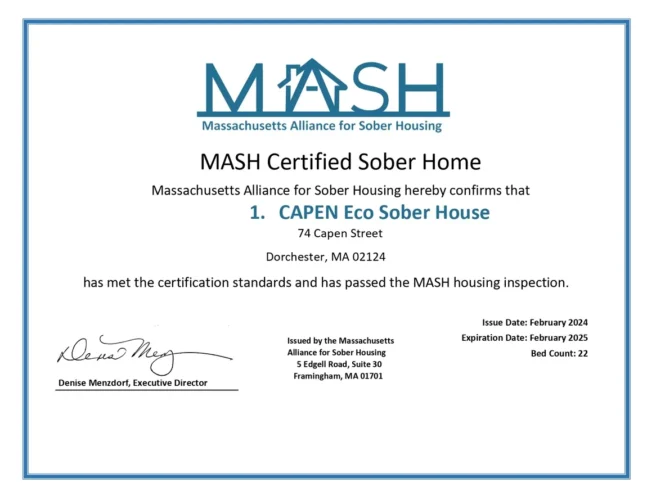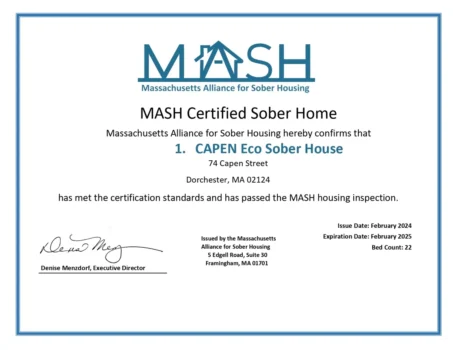
Non-judgmental attitude toward yourself and others to improve clarity and compassion. Additionally, meditation causes the release of endorphins, chemicals https://ecosoberhouse.com/ in the brain that work as natural painkillers by prompting a euphoric high. Artwork appearing to depict meditation goes back many thousands of years further than that. Seemingly originating in South and East Asia at around the same time, meditation’s earliest practitioners were followers of the Vedic and early Hindu schools as well as the Taoist monks of China. Many addicts come into recovery with a history of relationships that they have damaged or that have damaged them.
How to Use Strengths-Based Approaches in Addiction Recovery
This practice helps regulate stress, contributing to lower levels of anxiety and depression—conditions that commonly accompany recovery. Gratitude plays a pivotal role in addiction recovery by nurturing a positive mindset, which is essential for sustaining sobriety. When individuals practice gratitude, they learn to focus less on negative aspects of their lives and more on their blessings and strengths. This shift in focus can significantly reduce feelings of envy and harmful comparisons that often act as triggers for relapse. Mindfulness plays a vital role in fostering resilience during addiction recovery by equipping individuals with essential skills for managing stress, emotions, and cravings.
Incorporating Mindfulness into Daily Life
This means treating the underlying mental health issues at the root of addiction and providing patients with tools they need for a healthier, more satisfying life. Our meta-regression found that Treatment Group, Age, Trauma Groups, Research Design And Military vs. Civilian study populations were significant covariates in the regression on effect size (Hedges’s g). Yet even the best multivariate meta-regression model of these variables only reduced the unexplained variance (I2) to 72%. There is still much to be learned about what factors can enhance the effectiveness of meditation treatments, and we hope that our study will inspire new avenues of research. We also scored the studies using a 7-item CLEAR2 scale of research quality items that do not involve a control group.

Put Your Mind at Ease with Gratitude Lodge
Addiction is complicated, as it involves a physical dependency on a substance and psychological repercussions that can make it hard for individuals to break their pattern of damaging behaviors. Meditation also helps to expand a person’s perspective, allowing them to assess their thoughts and feelings from multiple angles. This can help you “get out of your head” and view your experiences through a more well-rounded and empathetic lens. When it happens, gently guide your focus back to your breath or the present moment without judgment. The process of detoxification involves various bodily systems, particularly the liver and kidneys, which play a vital role in filtering and excreting toxins.
- Many inpatient and outpatient recovery centers may offer yoga and meditation as part of their comprehensive treatment packages.
- Discover essential substance use disorder resources to support recovery and find hope in challenging times.
- Additionally, it’s vital to view meditation as a supplementary component of a broader recovery strategy, not as the sole solution.
- Both, together, form a very strong arsenal for overcoming addiction recovery challenges.
Addictioncenter.com notes several other emotional and environmental triggers as well as warning signs for relapse. Notice how many are outcomes of the pandemic, i.e., loss of a loved one, boredom, etc. While we have outlined one basic philosophy / form of meditation in the links below, if you already have a proven meditation technique — then we encourage you to combine & enhance it with our audio technology. EquiSync uses sound to deepen the meditative state no matter your chosen technique.
- Through meditation, individuals learn to observe their thoughts and feelings without judgment, fostering self-awareness that assists in recognizing triggers and cravings.
- The “controls” were the three other categories of meditation to which each category was compared.
- Our skilled and credentialed team at Gratitude Lodge work closely with every patient going through drug detox, facilitating the beginnings of a successful recovery at our rehab addiction centers in Orange County, CA.
The journey to sobriety is filled with challenges, but incorporating gratitude into your alcoholism treatment daily life can be a powerful catalyst for positive change. By focusing on gratitude, you can enhance your mental health, build resilience, and foster supportive relationships that are crucial for long-term recovery. Remember that each moment of appreciation reinforces your commitment to sobriety and opens the door to a fulfilling life. Start today by recognizing the blessings in your life, celebrating every victory, and sharing gratitude with those around you.
Breath Awareness Meditation

Approximately 26% of people with substance use disorders are also diagnosed with some form of anxiety or mood disorder. The effectiveness of meditation in treating and managing anxiety and mood disorders makes it an excellent tool in treating meditation for addiction recovery substance abuse. Many grounding techniques for addiction involve meditation-like practices to help people manage withdrawal symptoms. The benefits of meditation therapy include enhanced parasympathetic nervous system regulation, improved emotional resilience, and strengthened cognitive functions. Through regular practice, individuals experience reduced stress markers, better sleep patterns, and increased self-awareness. Meditation supports addiction recovery by promoting neurochemical balance, fostering mindful awareness, and developing healthy coping mechanisms.
- This collective gratitude not only enhances individual recovery journeys but also strengthens community ties, encouraging a nurturing environment that supports recovery efforts.
- Practicing mindfulness encourages an individual to stay in the moment, which helps to inhibit rumination, which can lead to negative thinking patterns and trigger addictive behavior.
- Recovery from addiction is a process; it’s not just about stopping abusing a substance.
- Mindfulness-based sobriety (MBS) is an innovative approach to addiction therapy that integrates mindfulness practices such as meditation and yoga to support individuals in recovery.
Alcohol and Muscle Growth
As you breathe deeply, you will allow any thoughts or sensations to pass with detachment – more on mindfulness meditation below. There is a growing body of research that shows the effectiveness of meditation in addiction recovery. A 2006 study showed that incarcerated individuals who engaged with a meditation program reported using significantly less alcohol, marijuana, cocaine, and crack than those who received only traditional evidence-based treatment. At the heart of all recovery programs is the goal of rewiring the brain. Meditation has been proven to be very effective at rewiring neurological pathways. By aiding in the rebuilding of positive neural connections in the brain’s reward center, meditation can be a very effective secondary therapy in treating and alleviating the symptoms of substance abuse and withdrawal.
Addiction Treatment Programs

In recent years, meditation and mindfulness have emerged as powerful tools in the realm of addiction recovery. These practices offer a holistic approach that enhances emotional well-being, manages stress, and provides individuals with the vital skills needed to maintain sobriety. As the addiction recovery community continues to explore these benefits, meditation and mindfulness are being increasingly integrated into treatment programs as complementary therapies that support traditional methods. This article delves into how these ancient practices can aid in overcoming addiction, focusing on stress reduction, emotional regulation, and a structured path to recovery. Meditation can play a significant role in addiction recovery by helping you develop greater self-awareness, manage stress and anxiety, and cultivate a greater sense of inner peace and well-being.

In 2014, a randomized control trial (RCT), the gold standard trial for evaluating the effectiveness of interventions, was conducted by Bowen and colleagues. The study investigated how effective the Mindfulness-Based Relapse Prevention program would be compared to a standard relapse-prevention program and a conventional 12-step program. Six months following the intervention, the mindfulness-based program and the traditional relapse-prevention program were more successful at reducing relapse than the 12-step program. One year later, the mindfulness-based program proved to be more effective than the other two in reducing drinking and drug use.